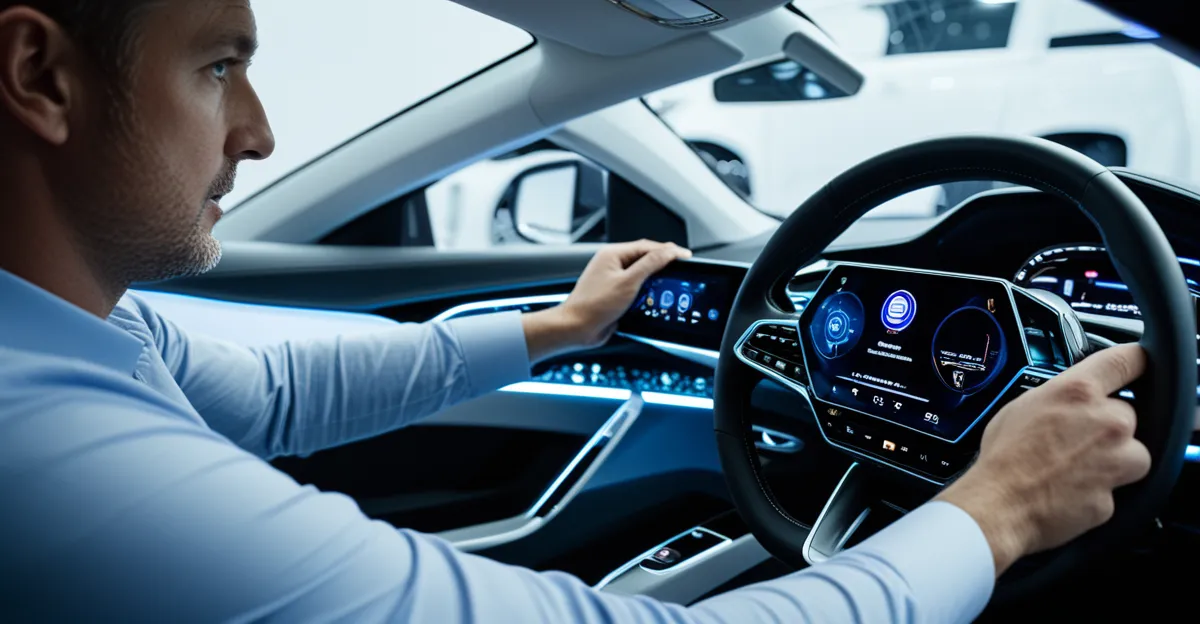Overview of Emerging Technologies in the Automotive Industry
Emerging technologies are rapidly transforming the automotive industry, especially within the UK’s dynamic landscape. These advancements broadly are categorized into electric vehicles (EVs), autonomous driving, and the integration of artificial intelligence (AI). The UK automotive sector is bustling with innovative efforts to leverage these technologies to drive growth and remain competitive globally.
Technological innovation is imperative for expanding the UK automotive industry’s capabilities. Modern trends push manufacturers to explore new paradigms in vehicle production, from leveraging renewable energy in electric systems to embedding AI-driven safety features. The continuous evolution of these technologies holds the potential to revolutionize how vehicles operate and interact with their environments. As a result, the UK automotive sector stands on the brink of a transformative era characterized by enhanced efficiency and sustainability.
Also read : What Are the Latest Revolutionary Technologies in the UK Automotive Industry?
Understanding the scope and impact of these emerging technologies is crucial for stakeholders aiming to navigate this ever-evolving industry. As these technologies mature, they promise not only to redefine the automotive experience but also significantly boost the industry’s economic contributions to the broader UK market.
Electric Vehicles and Their Impact
Electric vehicles (EVs) have taken a prominent stage in the UK’s automotive narrative. As of recent reports, the EV adoption rate in the UK has shown impressive growth, driven by both government incentives and increased environmental awareness among consumers. With a robust network of charging stations and initiatives like the ban on sales of new petrol and diesel cars by 2030, the UK market is rapidly evolving to accommodate this shift.
In parallel : Is the Future of UK Automotive Industry Dependent on Sustainable Innovations?
Among the major players leading this transformation are companies like Tesla and Nissan, with their widespread electric models already becoming household names. The trajectory of EV adoption promises further acceleration, with market analysts forecasting substantial increases in sales and market share in the coming years. Future trends indicate a surge in the development of battery technology and wider affordability, making EVs more accessible to a broader audience. This momentum not only redefines mobility but also strengthens the UK’s commitment to reducing carbon emissions.
Role of Artificial Intelligence
The role of artificial intelligence (AI) in the automotive industry is expanding rapidly, driven by technological advancements and the need for enhanced efficiency. AI applications in manufacturing and design processes are revolutionizing the way vehicles are produced. For instance, AI algorithms are utilized to optimize supply chains, predict maintenance needs, and improve production timelines. This integration not only enhances operational efficiency but also lowers costs.
In terms of enhancing user experience and vehicle safety, AI plays a crucial role. Automotive technology is increasingly incorporating AI-driven systems such as adaptive cruise control, lane-keeping assist, and emergency braking. These features rely on AI to analyze and respond to real-time data, improving safety and driver assistance capabilities.
Several UK automotive companies are actively implementing AI innovations. A notable example is Jaguar Land Rover, which uses AI to develop predictive technology, ensuring vehicles become smarter with each drive. Another example is McLaren, which leverages AI in its design and testing processes to produce cutting-edge sports cars. By utilizing AI, these companies demonstrate the potential for improved safety, efficiency, and user satisfaction in the UK automotive sector.
Autonomous Driving Technologies
Autonomous driving technologies are revolutionizing the automotive industry. These technologies, commonly known as self-driving cars, are currently in various development stages. They range from basic assistance systems, like adaptive cruise control, to fully autonomous vehicles that can navigate complex environments without human intervention. Such advancements hold the potential to drastically change how transportation systems operate.
In the UK, there are several key players and startups that contribute significantly to the development of autonomous driving technologies. Companies like Oxbotica and FiveAI are at the forefront, developing robust systems capable of functioning in diverse conditions. These enterprises focus on creating solutions that integrate AI and machine learning to ensure efficiency and safety. Their projects often involve extensive testing on UK roads, highlighting the nation’s commitment to innovation in this field.
However, potential societal impacts and regulatory considerations play a critical role in the adoption of these technologies. Autonomous vehicles promise to improve safety by reducing human error, yet they raise concerns around job displacement in traditional driving roles. Furthermore, governments must address regulatory hurdles, ensuring these technologies comply with safety standards and public policies. Balancing these factors will be essential as the UK navigates the future of autonomous driving.
Challenges Faced by the UK Automotive Industry
The UK automotive industry is currently navigating several industry challenges. As the sector embraces emerging technologies, one of the primary concerns is the development of adequate infrastructure, crucial for supporting the widespread adoption of electric vehicles (EVs). Ensuring an extensive and reliable network of charging stations is essential to sustain the growth in EV adoption and encourage more consumers to transition to electric alternatives.
Additionally, regulatory hurdles present significant obstacles. The introduction of new automotive technologies often requires comprehensive policy frameworks to ensure consumer safety and environmental compliance. Developing regulations that keep pace with rapid technological advancements while fostering innovation presents a delicate balance for government bodies and industry stakeholders.
Moreover, the shift towards automation and new technologies necessitates workforce adaptation. The sector is witnessing changes in skill requirements, with a demand for expertise in software, data analysis, and engineering tailored to new-tech environments. This transition requires reskilling programs to equip the existing workforce with capabilities aligned with current industry needs. As the UK automotive sector evolves, addressing these challenges is crucial to capitalize on technological advancements and maintain a competitive edge.
Future Outlook and Industry Forecasts
The future of the automotive industry in the UK looks promising, driven largely by technological advancements that continue to reshape the sector. Experts believe the integration of emerging technologies will play a pivotal role in shaping industry trajectories. As manufacturers adopt innovations, the UK is expected to become a global leader in advanced vehicular solutions, integrating electric systems, AI, and autonomous driving technologies.
Industry forecasts suggest substantial growth in technology integration within vehicles, with new models increasingly featuring advanced AI applications and electrification. This progress aligns with consumer demand for smarter, more sustainable vehicular options. As a result, stakeholders envision a significant increase in the market presence of electric and hybrid vehicles, making them mainstream choices.
The long-term implications for the UK economy are profound. Technological evolution in the automotive industry promises job creation in tech-centric roles while offering solutions to environmental challenges through reduced emissions. The industry’s movement toward sustainable practices is expected to support national strategies to meet climate targets and enhance economic resilience. By positioning itself as a frontrunner in automotive innovation, the UK stands to benefit immensely from the sector’s transformative progression.
Case Studies of UK Automotive Innovations
In the UK automotive industry, real-world examples of innovation showcase cutting-edge advancements and their market impact. These case studies highlight the ingenuity of UK companies in revolutionizing the automotive space, particularly in the areas of electric vehicles, artificial intelligence, and autonomous technologies.
Case Study: A Leading Electric Vehicle Manufacturer
One standout example is a major UK-based electric vehicle manufacturer pioneering advancements in battery technology and sustainable production methods. This company has significantly contributed to the EV adoption trend in the UK, offering vehicles with extended range and reduced charging times. Their commitment to sustainability and innovation sets a benchmark for other manufacturers looking to enter the electric vehicle market.
Case Study: Innovations in AI by a Major Car Maker
Another significant innovation comes from a renowned UK car maker utilising artificial intelligence to enhance driver experience and vehicle performance. By integrating AI systems, they optimize route navigation and introduce advanced safety features. These AI applications not only enhance user satisfaction but also demonstrate the potential for AI to transform routine driving into an intelligent and responsive activity.
Case Study: UK Startups Pioneering Autonomous Technologies
Autonomous driving is a frontier for UK startups that are making waves with their self-driving technologies. A notable startup specializes in creating robust, adaptable software systems ideal for the UK’s diverse driving conditions. Their commitment to developing fully autonomous vehicles underscores the potential for transforming urban transportation and reducing reliance on human drivers.









